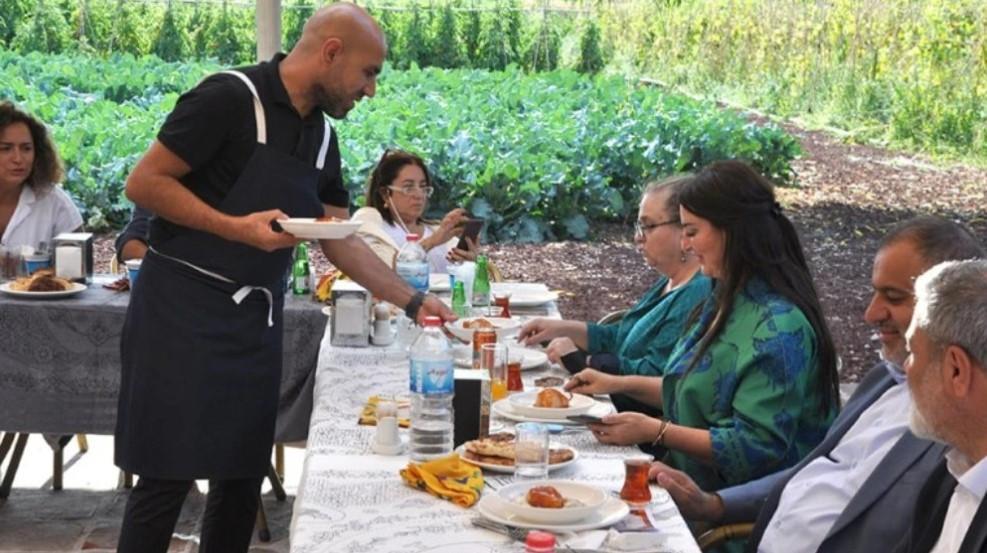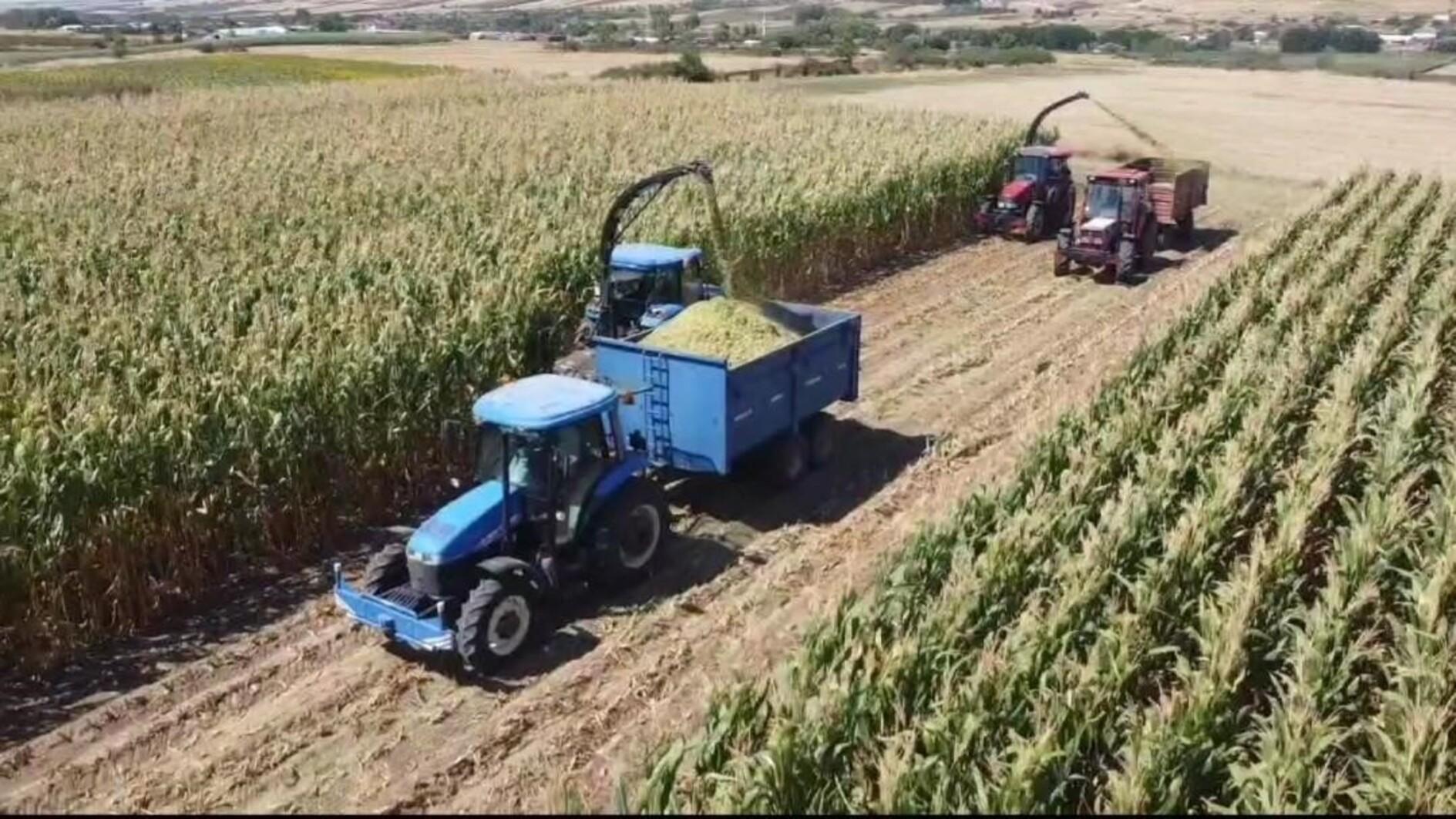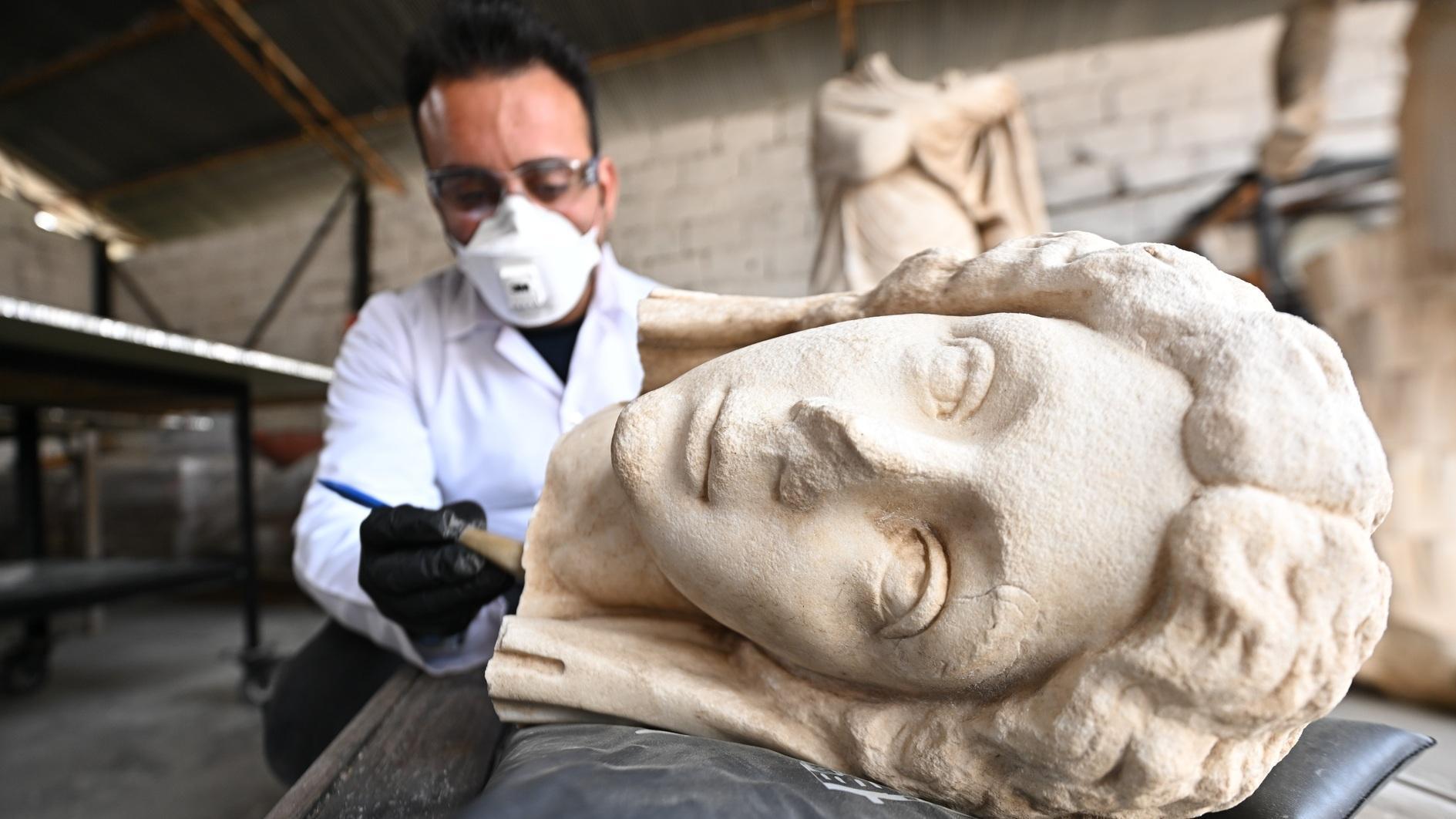Feasting Al Fresco

Food is the core to our lives. Now it seems that food culture is also the core of tourism in the promoting of countries, regions and cities. In my article last week, I mentioned a few recent gastronomy festivals taking place one after the other, with a handful of the same speakers taking the stage at each of the festivals. In a row it was, Gaziantep, Antalya, and Adana, a mango event in Alanya, and a tea harvest in Rize, and now it will be Diyarbakır and another Alanya event, this time focused on avocados and another one in Antalya again, displaying a cornucopia of meze plates, and so on. After some time, it seems to be the repetition of another, naturally so, as most are organized by the very same public relation agencies in Istanbul. In such an inflation of festivals, it is hard to make a difference and attract the attention of true taste seekers.
A recent attempt from the city of Tokat took a totally different approach. Like all other cities, they too did the same big thing for their citizens, but by contrast they also initiated a different way of celebrating their food for their guests. As an alternative to making a huge temporary event with tens of stalls, a big tent with speakers, and a few show workshops with famous chefs, they chose to do a more sustainable way by handling small groups at a time year-round, taking a mixed group of food writers, journalists and chefs, and hosting them around a table “al fresco” and the exciting part is, right the in the middle of a field. The events were initially planned to be totally about local cuisine, but with another step forward, they thought of inviting celebrated chefs, and asking them to create a menu with ingredients directly from the field around, also incorporating other local produce, and create dishes inspired from the local cuisine. The chefs are expected to find out about the reginal cooking, learn about the local produce and investigate the potentials of these products and come up with plates with their own unique take on reginal specialties.
I had the chance to attend the first of these chef’s tables in the midst of the field, under the warm Indian summer sun, with a few drops of rain occasionally wetting our plates, with exciting dishes from the hands of chef Umut Karakuş and his two very young talented female apprentices, namely Kübra Çalışkan Karakuş and Miray Göktaş. Our table was set near a corn field, a typical product of the Black Sea region, and the other side was an endless garden of green peppers, eggplants and ripe tomatoes, all ingredients of the legendary Tokat Kebap, an amazingly tasty combination of lamb and vegetable chunks, all cooked in front of an open fire thread with horizontally hung stewers. This is a true application of the much popular “from farm to plate” concept, this time all the vegetables are collected from a few steps away from the table, as fresh as they can be. The idea from Tokat Municipality, they hired a spot in a field, and set-up an open kitchen with a traditional wood-fired oven, and created a beautiful setting to have their guests feast al fresco.
The social facility built by Tokat Municipality started to serve last month, and the chain of famous chefs started by our table last week. The facility is a first of its kind in the country. The first guest chef was Umut Karakuş from Muuotto in Istanbul, taking the local ingredients and traditional dishes of Tokat to a whole new level with his modern interpretations, allowing us to look at the traditional and the local from a different perspective. The starter plate was a celebration of tomatoes, many different varieties came together with a sunny sauce of red peppers, with the greenest drops of herb infused oil and a sprinkle of crunchy black poppy seeds. The legendary vine leaves of Tokat formed the basis of foraged herb fritters with foamy yoghurt sauce, secretly sweetened with the mousse-like white grape molasses of Tokat, the famed Zile Pekmezi. The wheatberry stew “keşkek” was topped with slow cooked Karayaka lamb, with the last-minute invention of chef, a lacing of tart rosehip marmalade. The dessert was of a traditional milk pudding “muhallebi” again dotted with black poppy seeds, and beautifully stewed local autumn pear, with a syrup of rosehips. Even the local journalists were amazed by how different their good old local produce was turned into such contemporary plates. Moreover, everything on the table was as local as it could be, a truly good example of zero carbon footprint in the kitchen. There will be a chain of celebrated names that will cook there, and events can be organized for private groups, so stay tuned!
Women in Gastronomy
The exciting part of Tokat feast was to have two very young and talented women chefs in the back stage. I’m sure they will be celebrated chefs conducting their own kitchens in the future. When talking about women power in the gastronomy sector, the truly inspiring Michelin-starred Spanish chef María José San Román is back in town, so stay tuned to hear about the power of women in kitchens. She has previously cooked for distinguished guests of protocol at the Spanish Embassy in Ankara last year. She did not only cook the protocol dinner, but she spent a few days in Istanbul, she was as if like a storm that suddenly errupts in the skies, giving a tremendous effort in reaching out for women of gastronomy in her limited time in the city. She is a powerhouse of ideas, and the running force behind the MEG, Mujeres en Gastronomía / Women in Gastronomy, an association aiming at empowering women in the gastronomy sector.
Last year she had already established great contacts in Türkiye, aiming at launching the Turkish chapter of MEG, this time she is back to start from where she left off. Stay tuned also for the upcoming news from her, she has already started up a network of inspiring women from the field of gastronomy, not only chefs, but writers, researchers, producers, photographers, tasting experts, wine makers and so on. I hope we will be all uniting next year to feast al fresco, hopefully somewhere in the countryside in Anatolia, uniting with all the women toiling in the fields, and home kitchens, creating a women’s alliance in gastronomy from the field to the table.












